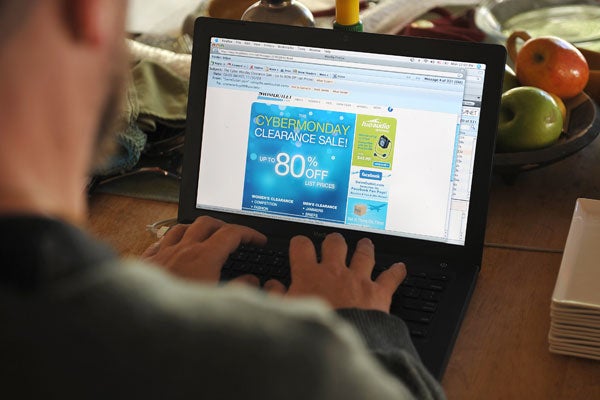Internet Sales Tax: Online Entrepreneur Would Downsize
Marguerite Bowling /
For Thomas Carlson of Cottage Grove, Minnesota, the Internet was key to unleashing a long-held dream of owning a business, quitting his federal job, and being his own boss. But his business, which amassed $1.4 million in sales last year, is at risk as the threat of an Internet sales tax looms in the Marketplace Fairness Act (MFA).
The bill, which passed the Senate and awaits action in the House, would require businesses with $1 million or more in remote sales to collect sales tax from online customers who live in other states. Online retailers would be required to bill the correct tax and send it to the appropriate state agencies. That would involve collecting the right sales tax for customers in almost 10,000 tax jurisdictions, and it could put Carlson’s business at risk for out-of-state audits from 46 states, the District of Columbia, and other U.S. territories.
“That’s my fear,” Carlson says of the potential for out-of-state tax audits.
Adding to the problem, Carlson’s company sells to several nonprofit clients that are tax-exempt and wouldn’t require him to collect sales tax. However, since there is no mechanism for tax authorities to know which e-businesses are supposed to collect sales tax, the main way to find out is through audits.
Carlson worries outside states will lump his tax-exempt sales with regular remote sales and require him to collect sales tax on the total, causing major hassle and expense to handle.
“Even if I’m over the $1.4 million mark in total gross sales but $401,000 of those sales are tax-exempt, my fear is that states [with sales taxes] will target me anyway just to see if they can get me.”
Carlson—who with his wife, Kimberly, directly sells assistive products for the elderly and other niche products though websites including Assistedlivingstore.com and Nonslipsock.com—already tracks his business’s sales and has created a contingency plan that could include cutting back on his business this year to stay below the $1 million revenue mark.
“Any way I look at it, this bill is going to stretch us too thin. We’re going to either have to hire someone we didn’t need before that we don’t want around to help us collect the right taxes, or we have to hold our business back from growth,” Carlson says, adding that he already pays Minnesota’s taxes for the physical storefront of his business.
Plus, Carlson says his websites may have to eliminate mail and phone orders that are popular with many of his senior-citizen clientele. “Some customers are older and don’t do the Internet. But some aging organizations or churches do print our website and provide copies to elderly customers who call us up, which my wife handles. With the MFA, we’d be talking about adding in extra steps of knowing what’s taxable and what’s not and finding the right rate. It won’t be worth the extra time and hassle.”
Learn more about the Internet sales tax and what it could mean for e-commerce and online shoppers at www.heritage.org/internetsalestax.

